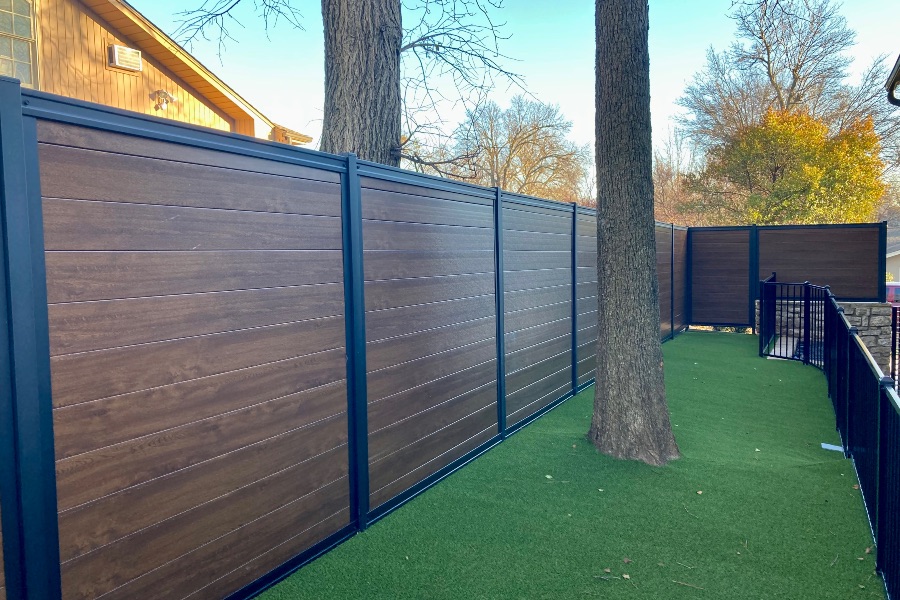All Categories
Featured

When planning to mount a fence around your home, one of the initial actions is understanding the permitting requirements in your area. Here's what you need to know regarding getting the required permits for your fencing installation.
Why Do You Required a License for a Fence? A license is commonly needed for fence setups to guarantee compliance with local structure codes, zoning regulations, and security laws. Allowing helps regional authorities keep harmony in community aesthetics, security, and environmental factors to consider. It also guarantees that the fencing does not conflict with energy lines or public areas, which it sticks to elevation and border limitations.

Usual Licenses Required for Fencing Installment. Structure License. Many locations need a structure permit for fence installment, especially if the fencing goes beyond a particular height (commonly over 6 feet) or is made from non-standard materials. This permit makes certain that your fence follows regional structure codes. In some locations, the building division will evaluate the website to ensure that the fencing fulfills safety and structural requirements.
Zoning Authorization. Zoning authorizations are developed to guarantee that your fencing sticks to neighborhood zoning laws, including setbacks from home lines, easements, and rights-of-way. Zoning laws vary from city to city, and in some cases, your fence might require to be established back a certain variety of feet from the sidewalk or road. If your fence is in a historical district or various other particularly assigned locations., a zoning license may likewise be needed.

Fence Permit. In some locations, a details "fencing license" may be required. Some cities limit chain-link fencings in front backyards or have details rules for privacy fences.
HOA Approval. If your home belongs to a house owners organization (HOA), you might require approval prior to setting up a fencing. HOA standards commonly include details policies about the kind, elevation, color, and products for fences to keep the community's aesthetic appeals. HOA laws can be stricter than city codes, so always check their standards before relocating forward.
Easement or Energy Authorizations. If your fencing will certainly be near or across an easement (such as an utility easement), you may need to obtain approval from the energy firm or other entities that manage the land. This is particularly vital if you prepare to dig for fence blog posts, as it ensures you won't harm below ground energies like power, gas, or water lines.
Exactly How to Discover What Permits Are Required. The best way to determine which permits are necessary for your fence installment is to contact your neighborhood building department or community workplace. They can give you with specific details concerning needs in your area. Right here are a few actions you can take to learn:
Check the City or Region Website: Several regional governments supply information regarding fence installment permits online. Seek building or zoning areas on their website. Call or See City Government Offices: If the details is not readily available online, calling or seeing the neighborhood workplace in person can clarify what's required. Consult a Professional Service Provider: If you're overloaded or unclear by the process, a neighborhood contractor or fencing setup business can help in navigating the permitting process, as they know with regional guidelines. What Happens If You Do Not Get a License? In many locations, you can encounter fines, and your fencing could be gotten to be eliminated. Allowing guarantees that your fencing is certified and aids prevent future issues.
Conclusion. Before setting up a fencing around your building, it's vital to check whether an authorization is called for in your area. Structure permits, zoning permits, HOA authorization, and utility approvals may all contribute in your fencing installment procedure. Making the effort to study and get the required licenses will not just guarantee that you're following local regulations, but also aid protect your investment and maintain the integrity of your home.
Latest Posts
Customized Shower Room Upgrades Made for Friendliness Quality
Published Dec 23, 24
1 min read
Washington Fence
Published Dec 23, 24
1 min read
Full Circle Marketing: Unlock Your Brand's Full Potential
Published Dec 23, 24
1 min read